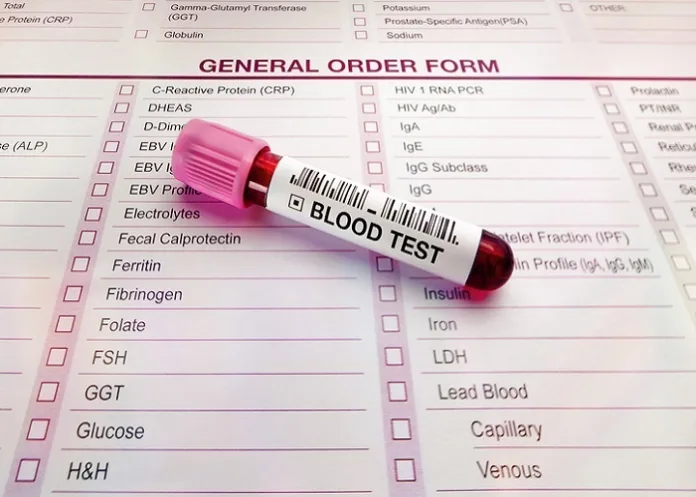A simple blood test to identify patients at risk of dementia will speed up development of new treatments, say scientists, whose study of frozen blood samples has turned up a trove of proteins that may predict several forms of the cognitive decline more than 10 years before diagnosis.
The study, by British and Chinese teams, is part of research by many teams to identify patients at risk of dementia, using a simple blood test, which they believe will accelerate development of new treatments.
Currently, brain scans can detect abnormal levels of the beta amyloid protein many years before Alzheimer’s dementia develops, but the tests are expensive and often not covered by insurance, reports Reuters.
“Based on this study, it seems likely that blood tests will be developed that can predict risk for developing dementia over the next 10 years, although individuals at higher risk often have difficulty knowing how to respond,” said Dr Suzanne Schindler, an Alzheimer’s researcher at Washington University, who was not involved in the research that was published in Nature Ageing.
Study author Jian-Feng Feng of Fudan University in Shanghai said such tests are critical in ageing populations like China’s. He is in talks for potential commercial development of a blood test based on their research
In the study, researchers at the University of Warwick and Fudan University studied 52 645 blood samples from the UK’s Biobank research repository, collected from 2006 to 2010 from people then showing no signs of dementia.
Of these, 1 417 people eventually developed Alzheimer’s disease, vascular dementia or dementia from any cause. The researchers studied protein signatures common in these individuals and turned up 1 463 proteins associated with dementia and ranked these according to how likely they were to predict dementia.
They found that people whose blood carried higher levels of the proteins GFAP, NEFL, GDF15 and LTBP2 were consistently likelier to have developed Alzheimer’s disease, vascular dementia or dementia from any cause. People with elevated levels of GFAP were 2.32 times more likely to develop dementia, confirming findings of smaller studies that pointed to the contribution of this protein.
The authors said their research was not validated independently.
One protein that performed well in predicting dementia, neurofilament light, was already used in the clinic for diagnosing and monitoring conditions such as multiple sclerosis, said Schindler.
Such tests are being used to identify candidates for clinical trials testing treatments in patients with early stage or even presymptomatic disease, such as Eisai and Biogen’s Leqembi. The drug recently won regulatory approval in the US, Japan and China.
Study details
Plasma proteomic profiles predict future dementia in healthy adults
Yu Guo, Jia You, Jin-Tai Yu, Jian-Feng Feng, et al.
Published in Nature Ageing on 12 February 2024
Abstract
The advent of proteomics offers an unprecedented opportunity to predict dementia onset. We examined this in data from 52 645 adults without dementia in the UK Biobank, with 1 417 incident cases and a follow-up time of 14.1 years. Of 1 463 plasma proteins, GFAP, NEFL, GDF15 and LTBP2 consistently associated most with incident all-cause dementia (ACD), Alzheimer’s disease (AD) and vascular dementia (VaD), and ranked high in protein importance ordering. Combining GFAP (or GDF15) with demographics produced desirable predictions for ACD (area under the curve (AUC) = 0.891) and AD (AUC = 0.872) (or VaD (AUC = 0.912)). This was also true when predicting over 10-year ACD, AD and VaD. Individuals with higher GFAP levels were 2.32 times more likely to develop dementia. Notably, GFAP and LTBP2 were highly specific for dementia prediction. GFAP and NEFL began to change at least 10 years before dementia diagnosis. Our findings strongly highlight GFAP as an optimal biomarker for dementia prediction, even more than 10 years before the diagnosis, with implications for screening people at high risk for dementia and for early intervention.
See more from MedicalBrief archives:
Science, not corporate zeal, must drive search for Alzheimer’s drug
Blood test to accurately predict early Alzheimer’s
Japan greenlights Alzheimer’s treatment

